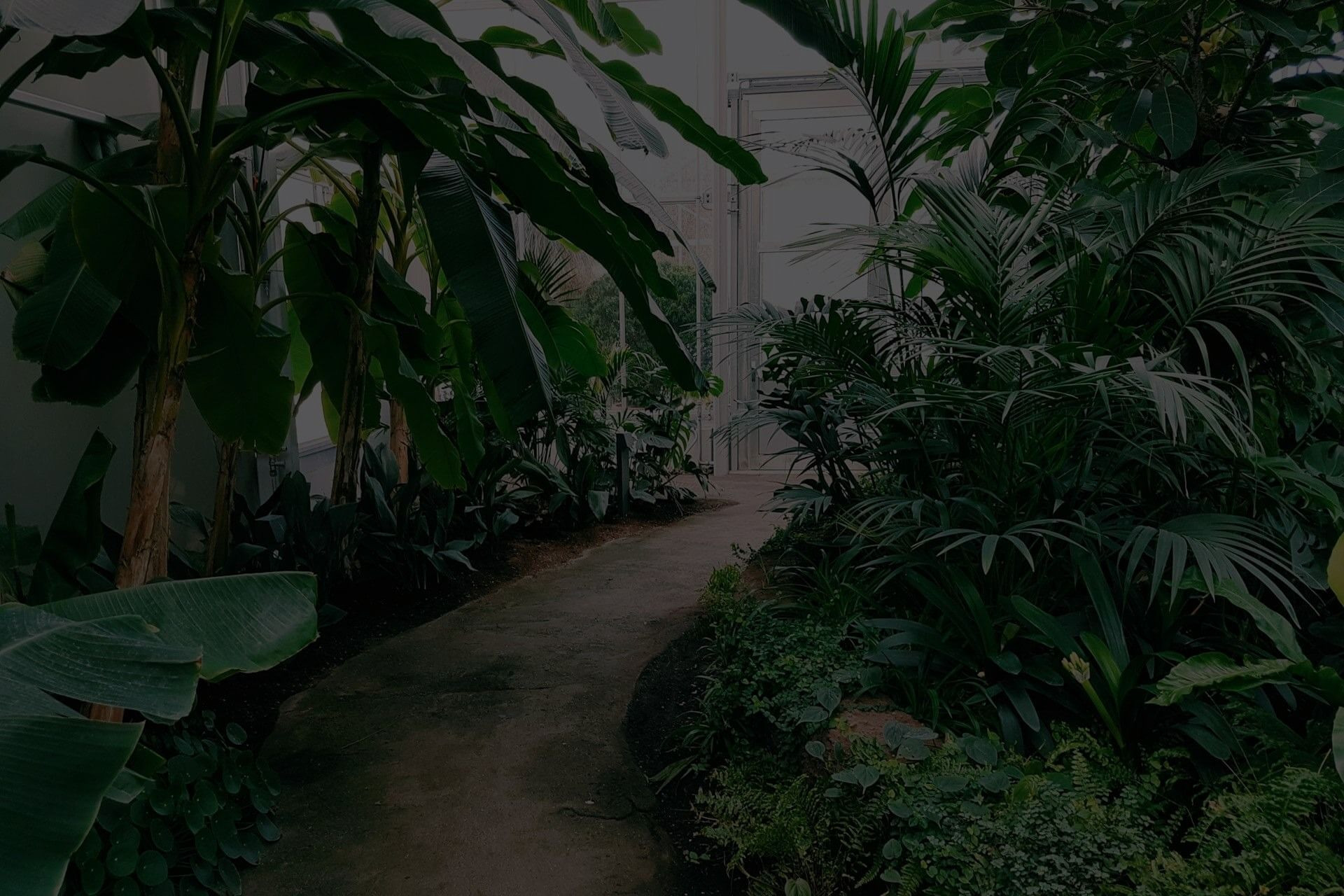What is Potato Cyst Nematode and How Does it Affect Plants?
Potato Cyst Nematode (PCN) is a microscopic worm that attacks plants, particularly those in the Solanum family, such as potatoes, tomatoes, and eggplants. It is a serious pest that can cause significant damage to crops, leading to reduced yields and lower quality produce. PCN is a quarantine pest in many countries, and its presence can have significant economic and environmental impacts.
Table of Contents
- What is Potato Cyst Nematode and How Does it Affect Plants?
- How Does PCN Affect Plant Growth?
- How is PCN Spread?
- Diagnosing PCN in Your Plants
- Preventing PCN in Your Garden
- Managing PCN Infestations
- Biological Control Methods for PCN
- Resistant and Tolerant Varieties of Plants
- Conclusion
- Frequently Asked Questions
How Does PCN Affect Plant Growth?
PCN attacks the roots of plants, causing damage to the root system and disrupting the plant's ability to absorb water and nutrients. This can lead to a range of symptoms, including stunted growth, yellowing of leaves, and reduced fruit production. In severe cases, PCN can cause plants to become more susceptible to other diseases and pests, further reducing their chances of survival.
How is PCN Spread?
PCN is typically spread through contaminated soil, water, or plant material. It can be introduced to a new area through human activity, such as the movement of infected plants or soil, or through natural means, such as wind or water. Once PCN is present in an area, it can be difficult to eradicate, as it can survive in the soil for many years.
Diagnosing PCN in Your Plants
Diagnosing PCN can be challenging, as the symptoms can be similar to those caused by other pests or diseases. However, there are several signs to look out for, including:
- Stunted or distorted roots
- Yellowing or wilting of leaves
- Reduced fruit production
- Presence of small, white, egg-like structures on the roots
If you suspect that your plants are infected with PCN, it is essential to seek the advice of a qualified plant pathologist or agronomist.
Preventing PCN in Your Garden
Preventing PCN is always better than trying to cure it. Here are some steps you can take to reduce the risk of PCN in your garden:
- Use certified disease-free seed potatoes
- Rotate crops to break the PCN life cycle
- Avoid moving soil or plant material from infected areas
- Implement good sanitation practices, such as cleaning tools and equipment regularly
- Consider using resistant or tolerant varieties of plants
Managing PCN Infestations
If you do find PCN in your garden, there are several management strategies you can use to reduce its impact. These include:
- Removing and destroying infected plants
- Applying nematicides or other control chemicals
- Implementing crop rotation and sanitation practices
- Using biological control methods, such as introducing natural predators or parasites of PCN
- Considering the use of resistant or tolerant varieties of plants
Biological Control Methods for PCN
Biological control methods involve using living organisms to control PCN populations. These can include natural predators or parasites of PCN, such as:
- Nematode-trapping fungi, which capture and digest PCN
- Bacteria, such as Pasteuria penetrans, which attack and kill PCN
- Insect predators, such as ground beetles, which feed on PCN
Biological control methods can be an effective and environmentally friendly way to manage PCN populations.
Resistant and Tolerant Varieties of Plants
Some plant varieties have natural resistance or tolerance to PCN. These can be a useful tool in managing PCN infestations, as they can reduce the impact of the pest and minimize the need for other control methods. Resistant varieties may have genes that prevent PCN from infecting the plant, while tolerant varieties may be able to survive and produce fruit despite being infected.
Conclusion
Potato Cyst Nematode is a serious pest that can have significant impacts on plant growth and productivity. By understanding how PCN affects plants, how it is spread, and how to diagnose and manage infestations, you can take steps to reduce the risk of PCN in your garden. Remember to use certified disease-free seed potatoes, rotate crops, and implement good sanitation practices to prevent PCN. If you do find PCN in your garden, consider using biological control methods or resistant and tolerant varieties of plants to manage the infestation.
Frequently Asked Questions
What is a Potato Cyst Nematode?
A Potato Cyst Nematode (PCN) is a microscopic worm that attacks the roots of plants, particularly potatoes, tomatoes, and other solanaceous crops. It is a type of parasitic nematode that can cause significant damage to plants, leading to reduced yields and stunted growth.
How do Potato Cyst Nematodes infect plants?
PCNs infect plants through their roots, which come into contact with infested soil. The nematodes then penetrate the root system, where they feed on the plant's nutrients, causing damage and disrupting the plant's ability to absorb water and nutrients.
What are the symptoms of a Potato Cyst Nematode infestation?
Infested plants may exhibit symptoms such as stunted growth, yellowing or wilting of leaves, and reduced yields. In severe cases, the roots may become severely damaged, leading to plant death.
How do I know if my soil is infested with Potato Cyst Nematodes?
You can have your soil tested for PCNs through a laboratory analysis or by observing the symptoms of infested plants. It's essential to test your soil regularly, especially if you're growing potatoes or other solanaceous crops.
Can I get rid of Potato Cyst Nematodes from my soil?
Yes, it's possible to manage and control PCN infestations through a combination of cultural, biological, and chemical methods. These include crop rotation, using resistant varieties, solarization, and applying nematicides.
What is the best way to prevent Potato Cyst Nematode infestations?
The best way to prevent PCN infestations is to maintain good agricultural practices, such as crop rotation, using clean seed and transplants, and avoiding contaminated soil or water.
Can I use chemicals to control Potato Cyst Nematodes?
Yes, chemical nematicides can be used to control PCN infestations. However, it's essential to use these products responsibly and follow the recommended application rates and guidelines to avoid environmental and health risks.
Are there any resistant varieties of potatoes that can resist Potato Cyst Nematodes?
Yes, some potato varieties have been developed with resistance to PCNs. These varieties can help reduce the risk of infestation and minimize the use of nematicides.
Can I grow potatoes in containers to avoid Potato Cyst Nematode infestations?
Yes, growing potatoes in containers can help reduce the risk of PCN infestations, as the soil is contained and can be easily replaced. However, it's still essential to use clean potting soil and follow good agricultural practices.
How do I dispose of infested soil?
Infested soil should be disposed of in a responsible manner to prevent the spread of PCNs. This includes bagging the soil and disposing of it in a landfill or through a licensed waste management facility.
Can I compost infested soil?
No, it's not recommended to compost infested soil, as the nematodes can survive the composting process and remain viable. Instead, dispose of the soil as mentioned above.
How long do Potato Cyst Nematodes survive in soil?
PCNs can survive in soil for several years, even in the absence of a host plant. This makes it essential to implement long-term management strategies to control infestations.
Can Potato Cyst Nematodes be transmitted through water?
Yes, PCNs can be transmitted through contaminated water, which can spread the infestation to new areas. It's essential to use clean water for irrigation and avoid using water from infested areas.
How do I protect my potatoes from other pests and diseases?
In addition to managing PCN infestations, it's essential to protect your potatoes from other pests and diseases, such as aphids, whiteflies, and fungal infections, through integrated pest management strategies.
Can I grow other crops in soil infested with Potato Cyst Nematodes?
Yes, some crops, such as cereals or legumes, are not susceptible to PCNs and can be grown in infested soil. However, it's essential to rotate crops and use resistant varieties to minimize the risk of infestation.
How do I monitor my soil for Potato Cyst Nematode infestations?
Regular soil testing and monitoring of plant symptoms are essential for detecting PCN infestations early. This allows for prompt implementation of management strategies to minimize the impact of the infestation.
Can I use biological control methods to manage Potato Cyst Nematodes?
Yes, biological control methods, such as using predatory nematodes or fungi, can be effective in managing PCN infestations. These methods are often environmentally friendly and can be used in conjunction with other control strategies.
How do I manage Potato Cyst Nematode infestations in a large-scale agricultural setting?
In large-scale agricultural settings, managing PCN infestations requires a comprehensive approach that includes crop rotation, resistant varieties, and integrated pest management strategies. It's essential to work with agricultural experts and follow best management practices.
Can I use cultural control methods to manage Potato Cyst Nematodes?
Yes, cultural control methods, such as adjusting planting dates, using trap crops, and modifying soil conditions, can be effective in managing PCN infestations. These methods are often low-cost and environmentally friendly.
How do I manage Potato Cyst Nematode infestations in a home garden?
In home gardens, managing PCN infestations requires a combination of cultural, biological, and chemical control methods. It's essential to follow best management practices and take a proactive approach to monitoring and controlling infestations.
Can I use organic amendments to manage Potato Cyst Nematodes?
Yes, organic amendments, such as neem oil or mustard meal, can be used to manage PCN infestations. These amendments can help reduce the nematode population and promote a healthy soil ecosystem.
How do I integrate Potato Cyst Nematode management into my overall pest management strategy?
Integrating PCN management into your overall pest management strategy requires a comprehensive approach that considers the entire agroecosystem. This includes monitoring, cultural control, biological control, and chemical control methods, as well as resistant varieties and crop rotation.
Indoor Plant Care A-Z
Adiantum Fragrans
Aechmea Blue Rain
Aechmea Fasciata
Aeschynanthus Marmoratus
Aeschynanthus Radicans Gesneriad
African Mask
African Spear
African Violet
Air Plant
Alocasia Amazonica
Alocasia Araceae
Aloe
Aloe Vera
Aloe Vera
Aloe Vera Barbadensis
Angel Wings Cactus
Anthurium Andraeanum
Anthurium Crystallinum
Arabian Coffee
Areca Palm
Aroid Palm
Arrowhead Ivy
Arum Lily
Asparagus Densiflorus 'Sprengeri'
Asparagus fern
Asparagus Setaceus
Aspidistra Elatior
Asplenium Antiquum
Asplenium Nidus
Athyrium Filix-Femina
Austrailian Ivy Tree
Austrocephalocereus Dybowskii
Austrocylindropuntia subulata
Azalea Plant
Baby Doll Ti
Baby Rose
Baby Tears
Baby Toes
Baby's Tears
Bamboo Palm
Banana Palm
Banana Plant
Banana Tree
Barbados Aloe
Begoniaceae Maculata
Bengal Fig
Benjamin Tree
Benjamin's Fig
Beringin
Bilbo Cactus
Bird Of Paradise
Bird's Nest Fern
Bird's Tongue Flower
Birds Nest Fern
Blue Pothos
Blue Rain Bromeliad
Blue Rain Plant
Blue Sansevieria
Blue Torch Cactus
Bonsai Ficus
Boston Fern
Boston Fern
Boy Flower
Brighamia insignis
Bromeliad
Buddha's Hand
Bunny Cactus
Burrageara Orchid X Oncidium
Burro's Tail
Butterfly Palm
Cabbage on a Stick
Cabeça-branca
Cactus
Caladium Lindenii
Caladium Magnificum
Calathea
Calathea Marantaceae
Calla Lily
Cambria
Cambria Orchid
Canna Leaved Strelitzia
Cape Jasmine
Cape Primrose
Cast Iron Plant
Cathedral Cactus
Cathedral Plant
Cereus Peruvianus
Ceropegia Woodii
Ceropegia Woodii 'Marlies'
Chain of Hearts
Chain of Pearls
Chamaedorea Elegans
Chinese Ape
Chinese Money Plant
Chinese PLant
Chinese Taro
Chlorophytum Comosum
Christmas Cactus
Christmas Kalanchoe
Cladophora
Cladophora Ball
Climbing Asparagus
Codiaeum Variegatum Var. Pictum
Coffea Rubiaceae Arabica
Coffee Bean
Coffee Plant
Common Purslane
Common Yucca
Cordyline Fruticosa
Corn Plant
Crab Cactus
Crane Flower
Crassula Arborescens
Crassula Hobbit
Crassula Ovata
Croton
Crystal Anthurium
Ctenanthe
Ctenanthe Pilosa Golden Mosaic
Curly Locks Cactus
Curtain Fig
Cycas Revoluta
Cylindrical Snake Plant
Date Palm
Day Flower
Delicious Monster
Devil's Ivy
Devil's Tongue
Devils Backbone
Dieffenbachia Araceae
Donkey's Tail
Dracaena
Dracaena Fragrans
Dracaena Fragrans Golden Coast
Dracaena Fragrans Janet Craig
Dracaena Fragrans Steudneri
Dracaena Magenta
Dracaena Marginata
Dracaena Sanderiana
Dragon Plant
Dragon Scale Alocasia
Dragon Tree
Dumb Cane
Dwarf Arrowhead Vine
Dypsis Lutescens Chrysalidocarpus
Easter Cactus
Elephant Bush
Elephant Ear
Elephant Yucca
Emerald Palm
English Ivy
Entangled Hearts
Epiphyllum Anguliger
Epiphyllum guatemalensis
Epipremnum Aureum
Epipremnum Aureum Neon
Epipremnum Pinnatum
Epipremnum Pinnatum Aureum
Eternity Plant
Euphorbia Enopla
Euphorbia Trigona
Euphorbia Trigona Rubra
Eves Pin Cactus
False African Violet
False Shamrock
Ficus Benghalensis 'Audrey'
Ficus Benjamina
Ficus Elastica
Ficus Elastica 'Ruby'
Ficus Ginseng
Ficus Microcarpa
Fiddle Leaf Fig
First Aid Plant
Fishbone Cactus
Five Holes Plant
Flaming Katy
Flaming Sword
Flamingo Flower
Flamingo Lily
Flamingo Plant
Florist Kalanchoe
Flowering Cactus
Freckle Face
Freckle Plant
French Peanut
Friendship Plant
Garden Ivy
Garden Rose
Gardenia Jasminoides
Giant Bird Of Paradise
Golden Cane
Golden Neon Pothos
Golden Pothos
Goldfish Plant
Guiana Chestnut
Guzmania
Guzmania Bromeliaceae
Happy Leaf Pothos
Hardy Elephant's Ear
Hardy Elephant's Ear
Hawaiian Ti Plant
Haworthia
Haworthia Rafiki
Heart Leaf
Hedera Helix
Hedera Helix Variagata
Hedera Hibernica
Heptapleurum Actinopyllum
Hobbit Jade
Horrida Plant
Horse's Tail
House Plant Cuttings For Propagation
Hoya Carnosa
Hurricane Plant
Hylotelephium Sieboldii
Hypoestes Phyllostachya
Inch Plant
Irish Ivy
Jade Plant
Jade Plant
Java Fig
Java Tree
Java Willow
Jelly Bean Plant
Jungle Boogie
Jungle Bush
Kalanchoe Blossfeldiana
Kalanchoe Delagoensis x Daigremontiana
Kleinia stapeliiformis
Korean Rock Fern
Lace Fern
Laceleaf
Lady Fern
Lake Ball
Lamb's Tail
Lemon Geranium
Leopard Lily
Lipstick Plant
Little Hogweed
Love Plant
Lucky Bamboo
Madagascar Jasmine
Maidenhair Fern
Malabar Chestnut
Malayan Banyan
Maranta Kerchoveana
Maranta Leuconeura
Maranta Marisela
Mason Congo Sansevieria
Measles Plant
Medicinal Aloe
Medicine Plant
Mexican Breadfruit
Milk Barrel Cactus
Miltonia Orchid
Ming Aralia
Mini Philo
Mini Swiss Cheese Vine
Missionary Plant
Mistletoe Cactus
Money Plant
Money Tree
Monkey Jars
Monstera
Monstera Adansonii
Monstera Deliciosa
Monstera Minima
Moss Ball
Moss Rose
Moth Orchid
Mother In Law's Tongue
Mother Of Thousands
Musa
Musa Basjoo Tropicana
N'Joy Pothos
Nemantanthus Gregarius
Nematanthus gregarious
Neon Devil's Ivy
Neon Pothos
Nepenthes Alata
Nephrolepis Exaltata
Never Never Plant
Night Blooming Cactus
Octopus Tree
Odontoglossum Orchid
Oilcloth Flower
Old Man Cactus
Oncidium Orchid
Opuntia Microdaisy Albata
Orchidaceae Phalaenopsis
Oxalis Triangularis
Pachira Aquatica
Pancake Plant
Pansy Orchid
Parasol Plant
Parlor Palm
Parlour Palm
Pass-it-along Plant
Passiflora Caerulea
Passionflower
Patio Rose
Peace Lily
Peace Lily
Peacock Plant
Pearl and Star Plant
Pelargonium Zonal
Peperomia Deppeana × Quadrifolia | Peperomia Tetraphylla
Peperomia Polybotrya
Peperomia Prostrata
Peruvian Apple Cactus
Philodendron
Philodendron 'Monkey Mask'
Philodendron Hederaceum
Philodendron Minima
Philodendron Scandens
Phoenix Canariensis
Pickle Cactus
Pickle Plant
Pilea Depressa
Pilea Mollis
Pilea Peperomoides
Pilocereus Azureus
Pincushion Euphorbia
Pink Jelly Beans
Pink Pork and Beans
Pink Splash
Pink Violet
Pitcher Plant
Polka Dot Begonia
Polka Dot Plant
Polyscias Fruticosa
Polystichum Tsussimense
Portulaca Umbraticolata
Portulacaria Afra Mediopicta
Pot Belly Fig
Pothos
Prayer Plant
Provision Tree
Purple Rain Plant
Purple Shamrock
Purple Wood Sorrel
Rabbit Ears Cactus
Rabbit's Foot
Rabbit's Tracks
Radiator Plant
Raindrop Money Plant
Raindrop Pilea
Rattlesnake Plant
Red Rhipsalis Cactus
Red Rubber Plant
Rhapidophora Tetrasperma
Rhipsalis
Rhipsalis Agudoensis
Rhipsalis Agudoensis
Rhipsalis Heteroclada
Rhipsalis Horrida
Rhipsalis Occidentalis
Rhododendron Inga
Ric Rac Orchid Cactus
Ric-Rac Cactus
Rosa
Rosary Plant
Rosary Vine
Rough Fern
Rubber Plant
Saba Nut
Sago Palm
Saint Barbara's Sword
Saint Paulia
Saint Paulia
Sansevieria Ehrenbergii
Sansevieria Trifascia
Sansevieria Trifasciata
Sarracenia
Satin Pothos
Savannah Geranium
Schefflera Arboricola
Schlumbergera Bridgesii
Scindapsus Pictum Argyraeus
Scindapsus Pictus
Sedum Morganianum
Sedum Rubrotinctum Variegata
Senecio
Senecio Herrianus
Senecio Rowleyanus
Senecio Stapeliiformis
Shark Fin Plant
Shark's Tooth Philodendron
Silver Dollar Plant
Silver Jade Plant
Silver Pothos
Silver Vase
Small-Leaved Fig
Small-Leaved Rubber Plant
Snake Plant
Snake Plant
Snake Tongue
Spanish Moss
Spathiphyllum
Spathiphyllum wallisii
Spear Sansevieria
Spider Plant
Spider Plant
Spiderwort
Spineless Yucca
Split-leaf Philodendron
Spotted Begonia
Star Plant
Stephanotis Floribunda
Stick Yucca
Stranging Fig
Strelitzia Alba
Strelitzia Nicolai
Strelitzia Reginae
Streptocarpus Saxorum
String of Beads
String of Hearts
String of Pearls
String of Tears
String of Turtles
Strings
Surprise Miltoniopsis
Sweetheart Plant
Sweetheart Plant Brazil
Swiss Cheese Plant
Swiss Cheese Vine
Sword Fern
Syngonium Erythrophyllum
Syngonium Nephphytis
Tailflower
Tears Pilea
Thanksgiving Cactus
Ti Leaf
Tiger Tooth Philodendron
Tillandsia
Tillandsia Ionantha
Tradescantia Albiflora
Tradescantia Commelinaceae Multiflora
Trailing Jade
Tropical Laurel
Tropicana Palm
Trout Begonia
True Aloe
Trumpet Lily
Trumpet Pitcher Plant
Trumpet Plant
Turtle Strings
UFO Plant
Umbrella Tree
Urn Plant
Variegated Chain of Hearts
Variegated Entangled Hearts
Variegated Laurel
Variegated Rosary Plant
Variegated Rosary Vine
Variegated Rubber Plant
Variegated String of Hearts
Vriesea splendens
Vuylstekeara Orchid
Wandering Dude
Wandering Jew
Wax Plant
Weeping Fig
Weeping Laurel
Whale Fin Plant
White Bird Of Paradise
White Crane Flower
White Flowered Wild Banana
Wild Banana
Wild Cape Banana
Yellow Palm
Yucca Elephantipes
Zamioculcas Zamiifolia
Zantedeschia
Zanzibar Gem
Zebra Basket Vine
Zebra Cactus
Zebra Lipstick Plant
Zebra Plant
Zebrina Pendula
Zigzag Cactus
Zuzu Plant
ZZ Plant
ZZ Plant
Harley Jennings
Harley Jennings is a renowned indoor plant expert with over 15 years of hands-on experience working with some of the UK's top botany and garden centers. Harley's passion for indoor plants blossomed early in his career, leading him to become a trusted authority in the field. He has spent years nurturing plants, researching the best care practices, and sharing his extensive knowledge with fellow plant enthusiasts.
Harley is the author of the comprehensive guide "The Complete Guide to Indoor Plant Care," where he combines his wealth of experience with a deep love for greenery. This guide provides readers with everything they need to know about indoor plants, from selection and placement to watering, feeding, and troubleshooting common issues.
In addition to his writing, Harley plays a pivotal role in the development of the Botanic Beam app, a revolutionary tool that offers plant lovers a wealth of information in one convenient place. The app simplifies plant care, providing tailored advice, reminders, and expert tips to help users create thriving indoor gardens.
Outside of his professional life, Harley enjoys urban beekeeping, finding a unique connection between nurturing plants and supporting local ecosystems. His relatable, down-to-earth approach makes him a favorite among both novice and experienced indoor gardeners. Whether through his guide or the Botanic Beam app, Harley Jennings continues to inspire and educate, helping people transform their homes into green sanctuaries.






